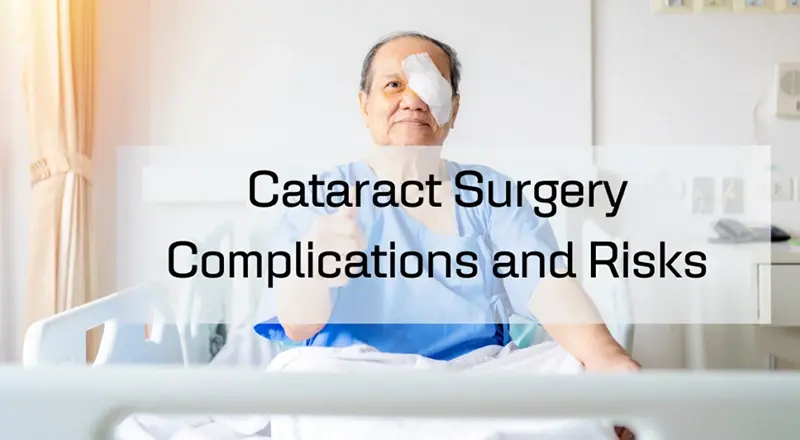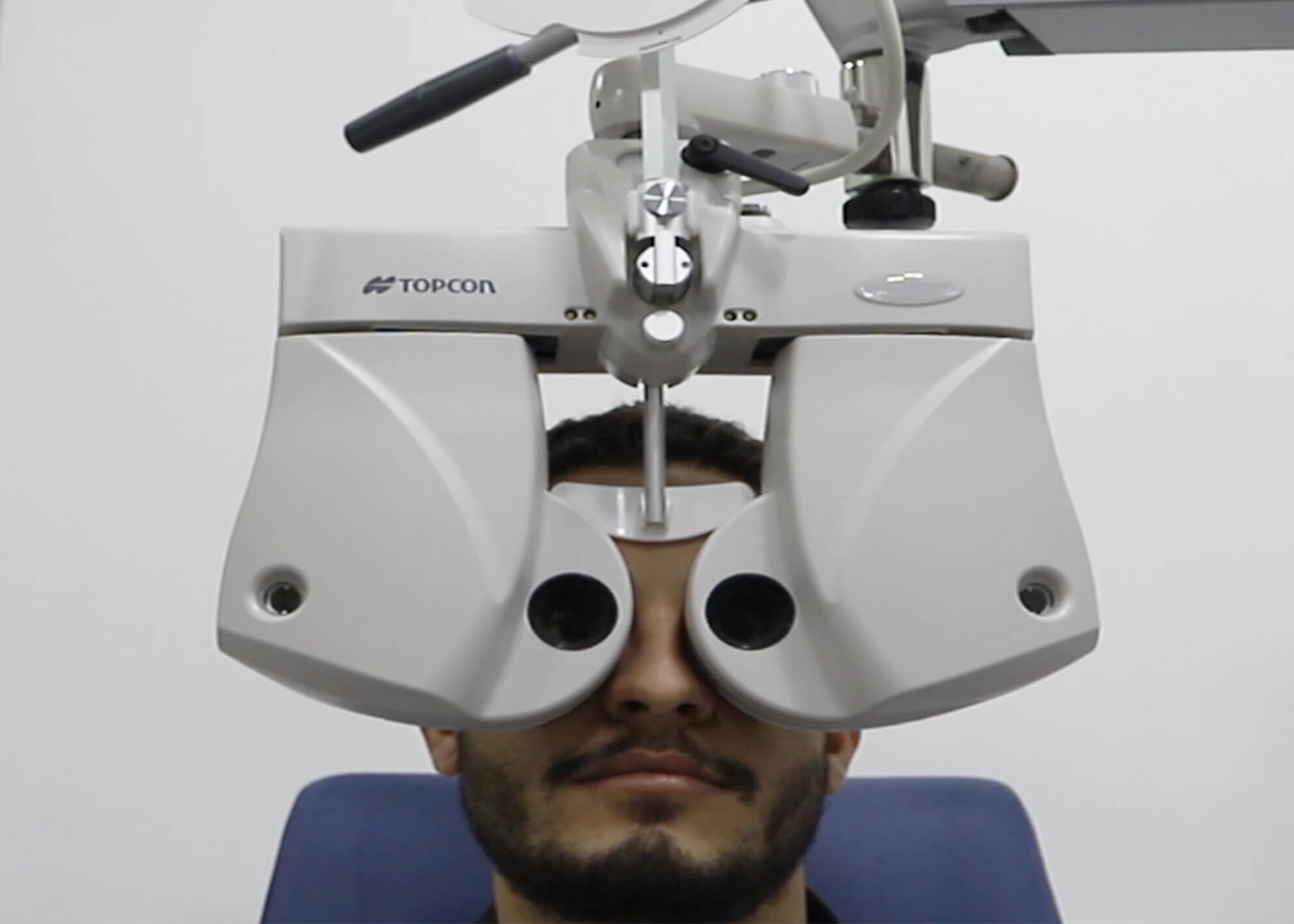Post Cataract Surgery Care and Complications at Eye Clinic DRHC Dubai
Cataract surgery is a common and generally safe procedure performed to restore vision that has been affected by cataracts. At DRHC Dubai, we are dedicated to ensuring that our patients receive comprehensive care both before and after surgery to promote a smooth recovery and optimal visual outcomes. Understanding the essential aspects of post-cataract surgery care and potential complications can help patients feel confident during the healing process.
Post-Cataract Care
Following cataract surgery, it is crucial to follow your doctor’s instructions carefully to ensure proper healing and minimize the risk of complications. Below are some key post-operative care guidelines:
- Protective The Eye
- Eye Shield: You will be provided with an eye shield to wear, especially while sleeping, to protect your eye from accidental rubbing or pressure.
- Avoid Strenuous Activity: Refrain from heavy lifting, bending over, or engaging in vigorous activities for the first few weeks after surgery. These movements can increase pressure in the eye, potentially affecting the healing process.
- Use of Eye Drops
- Prescription Eye Drops: Your doctor will prescribe antibiotics and anti-inflammatory eye drops to prevent infection and reduce inflammation. It is essential to use them as directed, typically for several weeks after surgery.
- Follow Schedule: Follow the recommended schedule for using the drops and ensure you don’t miss any doses to prevent complications.
- Managing Discomfort
- Mild Discomfort: Some patients may experience mild discomfort or itching after surgery. Over-the-counter pain relievers (as approved by your doctor) can help manage this, but avoid rubbing the eye.
- Sunglasses: Wear sunglasses when outdoors to protect your eyes from bright light and UV rays, which may cause sensitivity during the healing process.
- Follow-Up Appointments
- First Check-Up: Typically, you will have your first follow-up appointment a day or two after surgery. Additional check-ups will be scheduled over the next few weeks to monitor your healing.
- Monitoring Vision Improvement: Vision often improves within a few days of surgery, but full recovery may take several weeks. Your doctor will track the progress and address any concerns that arise.
- Resuming Daily Activities
- Driving: Most patients can resume driving within a few days to a week after surgery, once cleared by their doctor.
- Reading and Screen Time: You can usually return to light reading or screen use after a day or two, but you may need reading glasses or temporary lenses during recovery.
Potential Complications After Cataract Surgery
While cataract surgery is generally safe, there are a few potential complications that patients should be aware of. Early detection and treatment of these issues can prevent long-term problems.
- Infection or Inflammation (Endophthalmitis)
- Symptoms: Redness, swelling, eye pain, or vision loss within a few days of surgery may be signs of an infection.
- Prevention and Treatment: Using prescribed antibiotic eye drops reduces the risk of infection. If symptoms occur, prompt medical attention is necessary to address the issue.
- Posterior Capsule Opacification (PCO)
- What It is: PCO, also known as secondary cataract, occurs when the capsule holding the artificial lens becomes cloudy months or years after surgery.
- Treatment: PCO can be easily treated with a painless YAG laser procedure, which restores clear vision by creating an opening in the cloudy capsule.
- Retinal Detachment
- Symptoms: Sudden flashes of light, floaters, or the appearance of a shadow or curtain in your peripheral vision may indicate retinal detachment.
- Treatment: Retinal detachment requires urgent medical attention and may need additional surgery to repair.
- Increased Eye Pressure (Glaucoma)
- Symptoms: Eye pain, nausea, blurred vision, or seeing halos around lights could be signs of increased intraocular pressure.
- Prevention and Treatment: Your doctor will check your eye pressure during follow-up visits, and eye drops or additional surgery may be required to manage this condition.
- Dislocated Intraocular Lens (IOL)
- What It is: In rare cases, the artificial lens can shift out of position, leading to blurred or double vision.
- Treatment: A dislocated lens may require surgical repositioning or replacement to restore proper vision.
- Cystoid Macular Edema (CME)
- Symptoms: Blurred or distorted central vision can occur due to swelling in the macula, the central part of the retina.
- Treatment: CME is often treated with anti-inflammatory eye drops or injections. Early detection is key to preventing long-term vision impairment.
- Dry Eye Syndrome
- Symptoms: Dryness, irritation, or a gritty feeling in the eye may develop temporarily after surgery.
- Treatment: Lubricating eye drops or ointments can help relieve discomfort. In most cases, symptoms improve as the eye heals.
- Corneal Edema
- What is It: Swelling of the cornea may cause blurry vision after cataract surgery.
- Treatment: Corneal edema usually resolves on its own over time, but in some cases, additional treatment may be required to reduce the swelling.
When to Seek Medical Help
After cataract surgery, it’s essential to monitor your symptoms and seek medical attention if you experience:
- Sudden vision loss or extreme blurriness
- Severe or persistent eye pain
- Increased redness or swelling in the eye
- New floaters or flashes of light in your vision
Conclusion: Comprehensive Care at DRHC Dubai
At DRHC Dubai, we prioritize both your safety and comfort throughout the cataract surgery process. Our expert ophthalmologists are dedicated to providing personalized care, from pre-surgery consultations to post-operative follow-ups. If any complications arise, we are equipped to handle them promptly and effectively, ensuring the best possible outcome for your vision.
.png?width=281&height=59&name=bookanappointment%20(1).png)
At Dr. Rami Hamed Center, our Ophthalmology department is dedicated to safeguarding your vision health through expert eye care Professionals, Renowned as one of the best eye care clinics in Dubai our Ophthalmology Specialists provide services for Cataract and retina treatment with Laser and Refractive surgeries.




.png?width=281&height=59&name=bookanappointment%20(1).png)






